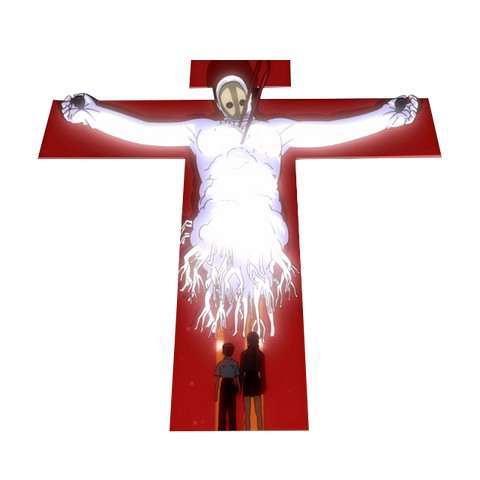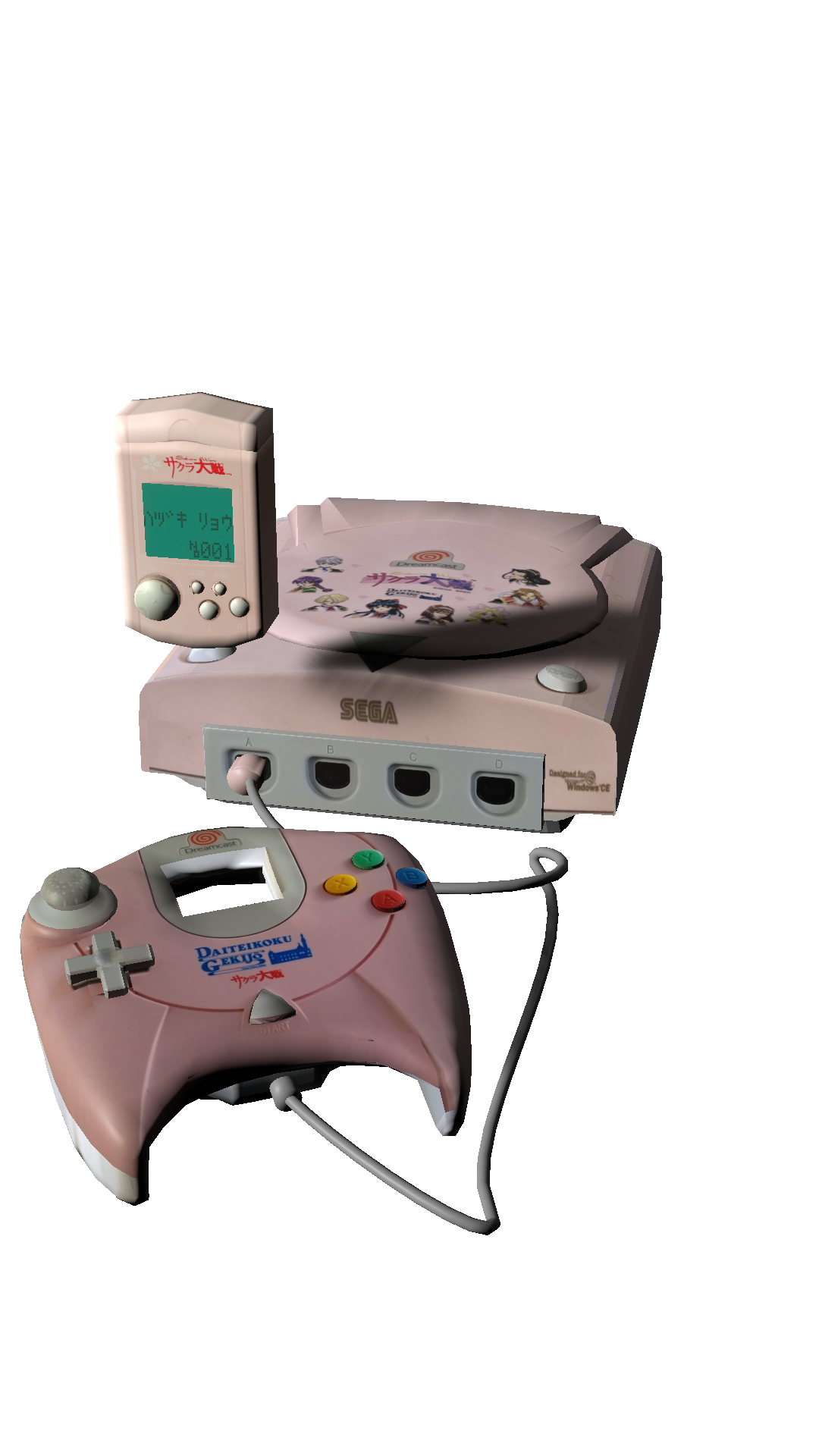
Editorial 01: The Psychological Horror of Neon Genesis Evangelion
Editorial: The Psychological Horror of Neon Genesis Evangelion
The human mind is equal parts beautiful, horrendous, and perplexing, even often paradoxical in nature. Hideki Anno examines the complexities of the human mind throughout the 1995 series “Neon Genesis Evangelion.” When a rich cast of characters with their own emotions, convictions, and struggles, meets a high-stakes setting such as the threat of eliminating the Angels, sparks fly, and the truth is shown bare to the audience, for better and for worse.

Typically, Neon Genesis is categorized as an amalgamation of genres. Apocalyptic, Mecha, Sci-Fi, and Action are all commonly used descriptions of series. Today, however, we will be examining Neon Genesis Evangelion as one of the most profound pieces of Psychological Horror to be created.
The premise of Neon Genesis follows these characters as they fight the Angels, born of Adam, in order to protect humanity. The primary way of doing this is through the piloting of Evangelion led by NERV.

Using the series' remarkable cast of characters, Hideki Anno explores the minds, hearts, and souls of humanity at large. From micro plots, foil characters and motivations, moving visuals, internal struggles, and the relationship between progress and stagnation in relation to discomfort and safety, Neon Genesis rips apart the armor guarding the human mind and forces the audience to look at the inside the core that lays within.
When these characters are combined with the stark reality of the show’s setting, and the numerous plot twists that reveal more about the state of the world, Neon Genesis Evangelion seeks to shine a light on the darkest aspects of the human mind and will.

Shinji Ikari, Asuka Langley, Rei Ayanami. Kaworu Nagisa, Gendo Ikari, and Misato Katsuragi. It is through these iconic characters that the ingenuity, dedication, and brilliance of a human's conviction are examined while raising the question of cost.
Shinji wants to feel accepted, loved, and appreciated, and this serves as his primary motivation throughout the entirety of the series. Ultimately Shinji fails to realize that the love he should have been looking for all along was within him, He goes through countless tribulations throughout the series' original 26 episodes, and through each of these challenges, we see more of Shinji’s true nature. Each and every seed that was planted throughout the show grows throughout each episode. As Shinji grows more confident, more dedicated to his friendships, and more comfortable being himself, we also see the inverse happen subconsciously, an aspect explored throughout the film “The End of Evangelion”.
Ultimately, in both endings, we find that despite the seeds that were planted by his relationships with other characters, Shinji is unable to rise to his full potential prior to the Human Instrumentality project. His killing of Kaworu, in conjunction with the trauma he endured throughout the series as he discovered the true nature of NERVE, SEELE, Adam, and Eve, left Shinji in a state of vulnerability that he couldn't help but wallow in, even while Asuka called for his help, enduring the worst pain of her life, and Misato sacrificed herself for him. Shinji’s story is one of the weakest parts of humanity. The part that lies within everyone, is that’s e try our best to suppress and replace with pride, purpose, or love. Shinji represents, in many ways, the most human character in the show.

Asuka, the independent, egotistic, and short-tempered pilot of Eva - 02 is a girl who wants nothing more than to be seen, appreciated, and praised. Yet her desire to acquire external validation leads her to make many risky decisions that endanger her own safety, and ultimately require the help of her friends.
It is Asuka, who undergoes the most substantial development in the series. She never loses her temper or pride, but she learns to accept (albeit begrudgingly) the perspectives d of other people. She never lets go of her rage, anger, and internalized self-hate, but she does her absolute best to fight for her own convictions. From a spear piercing her Evangelion’s head, to being ripped to shreds, Asuka is the paragon of perseverance, and while it is through her willpower that she is able to keep going, it is also the most significant source of contention between her and Shinji.
Rei, arguably the most heartbreaking character, is a girl whose sense of meaning and worth is tied directly to her ability to follow orders. She is expendable, replaceable, and is instilled with a blind sense of duty. From her history and true nature is revealed, to her relationships with the cast, Rei was ultimately able to find authenticity and do her best to transcend her fate as a replacement, growing to become much more than anyone ever expected.

Rei faces revelations the most overtly damaging to her psyche. From her lack of will or independent thought to the discovery of her cyclical existence in which she has been cloned and reborn numerous times to the reveal of her DNA being based on a fusion of the 2nd Angel and Ikari’s wife. Her role within the series seems purely to be used as a pawn by Ikari to advance his own emotional and political agenda. It isn’t until her ascension into Lilith, that we see Rei fully spread her wings, but seems to have lost the humanity that was once present below the surface. Rei symbolizes a human who was pushed beyond their breaking point, although they are still alive, they are missing the humanity and aspects of self that made them who they were in the first place.
Ikari is one of the hardest characters to like. Despite his brilliance, he very rarely seems to care about the stakes at hand, nor the people he leads, save Rei. He is a man whose genius was used to further his own selfish goals while being tied directly to the needs of humanity. Ikari’s struggles are reminiscent of the classic moral dilemma of the Trolly Problem, wherein he actively chooses to prioritize his love for his dead wife through Rei and forsakes many others through the process. He also forces the audience to contemplate the inverse relationship between goodness, and intellectual prowess, where one is forced to ask themselves, “At what point does one’s subconscious calculations of possible favorable outcomes impact their ability to do good, expecting nothing in return?”
Ikari, who is arguably the cause of the end of the world through his desire to pursue the Human Instrumentality Project, still has redeemable qualities in some ways. He is, in many ways, the manifestation of the power that is held when human desire meets unyielding will and creative thinking. At his core, he is simply a man who wanted nothing more than to be reunited with the woman he loved, and stopped at nothing to achieve that. He chose to forsake the wills and desires of all other humans in order to achieve it, and his relationships with the cast suffered because of it,
Misato is quite an interesting character when we look at the series overall. Aside from her romantic interest in Ryoji, she is one of the most pure-hearted and genuinely good characters in the show. It can be argued that she is in fact, a foil to the more corrupt or damaging desires of the other cast, supporting and otherwise. Through her altruistic nature, comic relief, and determination Misato serves a crucial role, not only within the context of the series’s plot but also within the micro plots and grander themes developed and explored throughout its events.

Misato represents the sacrifice and altruism of humanity. She chooses, time and time again, to put others' needs in front of her own, for the greater good. From taking in Shinji and Asuka to serving as a mentor to them both, to ultimately sacrificing herself for their sake, Misato seems to serve the purpose of the average person or a baseline. It is through her normality that the other characters’ desires and twisted perceptions come to light, and in turn, these same things allow for her kindness, determination, and purity of heart, to shine.
Finally, one of the most polarizing characters in the series is Kaworu Nagisa. Despite being introduced in the final two episodes of the series, Kaworu serves a crucial role in Shinji’s development, and the plot’s progression, and creates another commentary on the themes of purpose, fate, and individuality explored throughout the show by Rei and the other pilots.
Kaworu could easily be considered a tragic character. A boy who waited years to find Shinji, befriend him, and fall in love with him, only to sacrifice their relationship for the goal he set out to accomplish. Once again, we see that the desires and wants of a character cause them to sacrifice the things they truly treasure most. Ultimately, Kaworu discovers that his mission was in vain, and begs his friend to kill him, further emphasizing the themes of desires' true cost, while plunging Shinji into one of the darkest moments he is forced to endure,

Neon Genesis Evangelion is an examination of the complexities of the human mind, and an explication of its flaws, beauties, and contradictions. Every character faces numerous battles. Both on the battlefield, as well as in their own minds. The viewer witnesses these gargantuan struggles, and is forced to look inwards, reflect, and begin their own.
